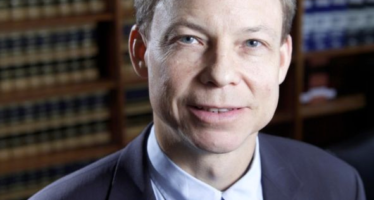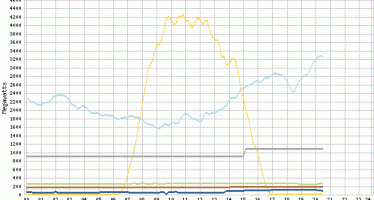Officials eye statewide marijuana regs
 With marijuana legalization initiatives looming, Sacramento has turned its attention to standardizing regulations covering the popular decriminalized drug.
With marijuana legalization initiatives looming, Sacramento has turned its attention to standardizing regulations covering the popular decriminalized drug.
Competing alternatives
Legislators have advanced two different proposals, differing largely in how much regulatory control they leave to local government. The plan put forward by Assemblyman Ken Cooley, D-Rancho Cordova, would task both state and city governments with licensing dispensaries and marijuana farms, the Los Angeles Times noted. Another bill, authored by Assemblyman Rob Bonta, D-Oakland, “would divide regulation tasks among multiple state agencies.”
Different constituencies have begun to line up in favor of one or the other option. “Law enforcement officials prefer the Cooley bill because it gives local governments more control,” reported the Times, while the California Cannabis Industry Association has come down against Cooley’s bill.
Mainstreaming marijuana
Despite the disagreement and broader regulatory confusion — federal law banning the sale of marijuana has not changed — Californians have continued to press ahead for looser rules. Public opinion and public policy have converged steadily toward a greater normalization of marijuana users, if not always marijuana itself. This month, for instance, an overwhelming majority of Assembly lawmakers passed AB 258, The Medical Cannabis Organ Transplant Act, introduced by Marc Levine, D-San Rafael.
According to the bill’s language, “[a] hospital, physician and surgeon, procurement organization, or other person shall not determine the ultimate recipient of an anatomical gift based solely upon a potential recipient’s status as a qualified patient…or based solely on a positive test for the use of medical marijuana by a potential recipient who is a qualified patient.”
In the Senate, meanwhile, state Sen. Mike McGuire, D-Healdsburg, has introduced SB 643, the Medical Marijuana Public Safety and Environmental Protection Act. That bill would use a mix of state and local regulation to address the environmental impact of marijuana cultivation.
As the Guardian observed, McGuire “says illegal grows are deforesting government lands, polluting waterways and affecting the health of those who use medical marijuana. One provision of his bill requires all cannabis to be certified organic by 2022, to eliminate polluted runoff into state waterways and make marijuana safer to use,” while another would crack down on “the illegal use of water to irrigate cannabis crops.”
Industry investment
Underscoring the economic interest at stake in statewide legalization, one popular dispensary app recently spent $1 million on its own initiative-driven organization. As the Sacramento Bee reported, “Irvine-based Weedmaps Media, LLC, which runs Weedmaps.com, put the money into the company-sponsored ‘Californians for Sensible Reform’ to support a possible 2016 initiative.”
Although details on that proposed measure have yet to emerge, the Bee noted, two others have advanced on the strength of more concrete reforms.
One, the California Craft Cannabis Act, “would create a California Cannabis Commission to regulate the industry. Marijuana sales would be subject to all applicable taxes, with additional taxes allowed up to 30 percent. Larger-scale, commercial grows would be subject to additional rules and tax regulation. The law also would preempt any local marijuana restrictions.”
Another, put forward by Californians for Compassionate and Sensible Access, focused more narrowly on local preemption.
Local schemes
With the path to reform in 2016 still so unclear, cities with a marijuana agenda of their own have forged ahead with ideas confined to the municipal level. In San Francisco, Supervisor Scott Wiener and Terrance Alan, the Entertainment Commissioner turned marijuana activist, have joined to propose that the Board of Supervisors create a city-specific Cannabis State Legalization Task Force.
“There’s a reasonable chance that next November the voters will legalize recreational cannabis use in California. The last thing we need in San Francisco is to have a chaotic fire drill about local implementation and so forth,” Weiner told Smell the Truth. For the foreseeable future, San Franciscans won’t be alone in that regard.
Related Articles
Fewer Families Dictates State's Destiny
FEB. 9, 2011 By WAYNE LUSVARDI The package of spending cuts and tax increases championed by Gov. Jerry Brown in
Recall campaign against CA judge mounts
Facing a never-before-seen push to oust him because of a ruling, a California judge has become the focus of a
Solar crash ramped up CA natural gas power
Yesterday a problem struck California’s electricity system that wasn’t supposed to happen until at least 2015. Freak low-lying clouds




